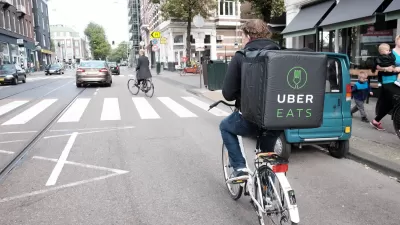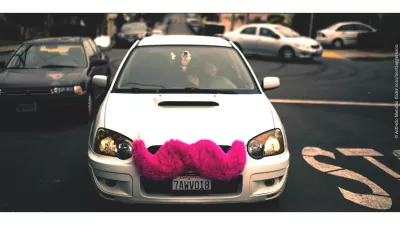Cities have transformed in profound ways, but more recent changes were the last part of a series of technology waves.

"For many years we've been promised that the marriage of technology and the city, the 'smart city,' would revolutionize urban life. But for a long time the term has essentially been a buzzword attached to different concepts over three distinct generations, accompanied by generous measures of hype and, lately, some serious questions about who's in the driver's seat," writes Aaron M. Renn.
The first generation focused on developing technology solutions to help cities manage operations for services such as water and transit. The second generation involved the promotion of open data to help cities run more smoothly. These first two generations kept cities in control of technology, but they failed to revolutionize urban areas, says Renn.
The third generation did transform cities, but the private sector deployed its technology in urban environments to provide goods and services to consumers and largely left government out of the process. Companies such as Uber, Lyft, and Airbnb often bypassed regulatory structures to change and shape cities.
"In many cases cities are struggling to catch up, sometimes not even knowing what's happening under their noses. This will be a profound challenge not just for governments, but also to our idea of the urban social contract and the division of functions between the public and private sectors," adds Renn.
FULL STORY: How Cities Lost Control of the Urban Tech Revolution

Alabama: Trump Terminates Settlements for Black Communities Harmed By Raw Sewage
Trump deemed the landmark civil rights agreement “illegal DEI and environmental justice policy.”

Study: Maui’s Plan to Convert Vacation Rentals to Long-Term Housing Could Cause Nearly $1 Billion Economic Loss
The plan would reduce visitor accommodation by 25% resulting in 1,900 jobs lost.

Planetizen Federal Action Tracker
A weekly monitor of how Trump’s orders and actions are impacting planners and planning in America.

Waymo Gets Permission to Map SF’s Market Street
If allowed to operate on the traffic-restricted street, Waymo’s autonomous taxis would have a leg up over ride-hailing competitors — and counter the city’s efforts to grow bike and pedestrian on the thoroughfare.

Parklet Symposium Highlights the Success of Shared Spaces
Parklets got a boost during the Covid-19 pandemic, when the concept was translated to outdoor dining programs that offered restaurants a lifeline during the shutdown.

Federal Homelessness Agency Places Entire Staff on Leave
The U.S. Interagency Council on Homelessness is the only federal agency dedicated to preventing and ending homelessness.
Urban Design for Planners 1: Software Tools
This six-course series explores essential urban design concepts using open source software and equips planners with the tools they need to participate fully in the urban design process.
Planning for Universal Design
Learn the tools for implementing Universal Design in planning regulations.
Caltrans
Smith Gee Studio
Institute for Housing and Urban Development Studies (IHS)
City of Grandview
Harvard GSD Executive Education
Toledo-Lucas County Plan Commissions
Salt Lake City
NYU Wagner Graduate School of Public Service




























